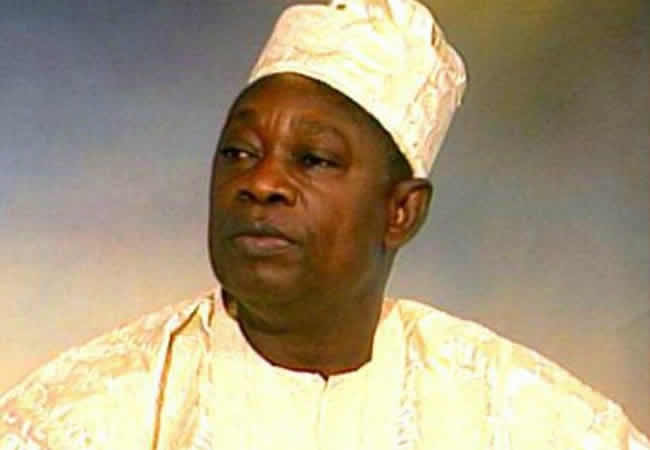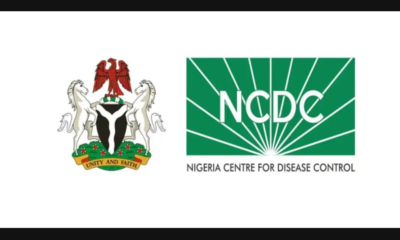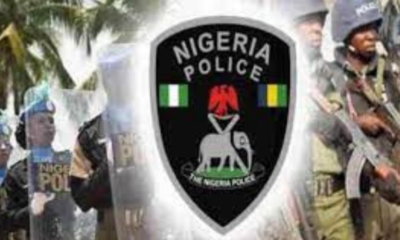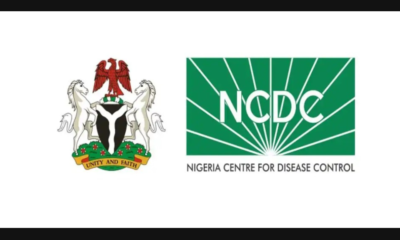Politics
The Good And Bad Of Buhari’s June 12 Declaration
‘Fisayo Soyombo discusses the declaration by President Muhammadu Buhari that June 12 has become the new Democracy Day in Nigeria.
It took 25 years to happen — long enough for the dream to have evaporated — but Moshood Kashimawo Olawale (MKO) Abiola has finally taken his place in history as the number-one martyr of Nigerian democracy. Before now, six former leaders could have made it happen: Ibrahim Babangida, Sani Abacha, Abdulsalami Abubakar, Olusegun Obasanjo, Umaru Musa Yar’Adua, Goodluck Jonathan. Of the six, Abubakar and Obasanjo are the most culpable.
Actually, Abdulsalami’s omission is the most confounding. It’s still a surprise why, as Military Head of State, he chose May 29 rather than June 12 as the date to surrender power to a civilian government — particularly since the two dates were just 14 days apart. But, in the eyes of historians, Abdulsalami is a man who can do no wrong. By voluntarily surrendering power in 1999, he long earned himself a mention anywhere Nigeria’s democratic evolution and maturation is the subject. Obasanjo’s is beyond comprehension, and public indignation at his Abiola snub needs no explanation: here is a man who was the biggest beneficiary of MKO’s martyrdom but failed to recognize his political pacesetter throughout his eight-year presidential reign.
Obasanjo’s desperation to be the face of Nigerian democracy (plus his fixation with media spotlight) has paved the way for Buhari, a former coup plotter, a man whose list of mentors (as he tacitly admitted recently) includes the despotic Sani Abacha to claim the ‘accolades’. For his declaration of June 12 as the authentic Democracy Day, beginning from Tuesday, and the planned award of the GCFR honour to the late MKO, Buhari has featured prominently on the lips of his hailers and the ‘wailers’ these past few days. In truth, his move is both good and bad. Due to the sensitivity of June 12, MKO’s eternal popularity among the Yoruba and the prospect of being branded a ‘wailer’, the temptation is to discuss the good of this decision before the bad. But life is hard enough already — too hard to hold a good-and-bad conversation by taking the good first and ending it all in bad taste. So, bad news first, then the good.
There are two reasons Buhari’s camp will never win the argument that the GCFR honour and June 12 declaration are part of a disingenuous 2019-election scheming. Before last week’s pronouncement, Buhari celebrated four democracy days on May 29 — in 2015, 2016, 2017 and 2018. Not once did he consider May 29 irrelevant (or less relevant than June 12) to Nigeria’s democratic odyssey. Had the declaration been a well-thought-out plan, the 2018 edition was the golden opportunity to declare it; curiously, it slipped by.
Had Buhari been utterly convinced of the importance of immortalising MKO with June 12, the move would have been made in his early presidential years when he enjoyed his strongest bond with the man who would be most vilified by the announcement: Obasanjo. Now, having fallen out of favour with Obasanjo, and knowing the ex-president’s influence, particularly in the south-west, it was only logical for Buhari to summon all the weapons in his arsenal to undermine his latest big-game adversary.
The good news, though, is that actually, to the people for whom June 12 means everything, it doesn’t matter why Buhari did what he did. Abiola put his life on the line for Nigeria, and he was well-aware of the consequences of his actions. Before delivering the Epetedo Proclamation on this day exactly 24 years ago, on his return to Nigeria after initially spending some time overseas, he told some of his political associates that he had returned as a “dead man”. Nothing, not even death, should scare a dead man, he had said. Such courage, therefore, cannot be defined by the motives of Buhari’s declaration.
Buhari’s move can be likened to that of a dubious politician who arrives a polling booth with the offer of cash for the electorate. The popular advice of civic-responsibility advocates to such voters is: “take the money — because it is your money that was stolen — but do the right thing”. So, even though Buhari has made this declaration primarily to ingratiate himself with the south-west ahead of 2019, we accept his offer but it won’t prevent us from voting him out should we find a more qualified candidate next February.
The time has come for the electorate to be ‘greedy in a positive way’, if there is anything like that. The politicians do not really care about us. They don’t really care about us! That is why Buhari, leader of the December 31, 1983 coup d’etat, is suddenly trying to sneak into our hearts through the backdoor as the custodian of the Abiola legacy. That is why the Peoples Democratic Party (PDP) — a party that directly profited from Abiola’s supreme sacrifice and was in power for 16 years yet failed to nationalise the June 12 celebration — is suddenly screaming that “bestowing a posthumous national award on Abiola does not make Buhari a democrat”. PDP suddenly thinks it is “a sign of political desperation for Buhari to seek to use Abiola’s name as a tool to sway Nigerians in less than 12 months to an election where he is seeking a second term”. PDP forgets that if it had honoured Abiola with June 12 at any time throughout its 16-year reign, the ‘Abiola opportunity to solicit votes’ would be unavailable to Buhari. If politicians really cared about us, Atiku Abubakar — after fighting a relentless media war with Obasanjo for several years — would not realize “without equivocation” in June 2018 that his ex-boss “is a historical figure in Nigeria’s democracy” who should not be touched by Buhari or security agents.
It is because we know all these that we should adopt an I-dey-laugh-o disposition to Bola Tinubu’s position that “this presidential proclamation should forever bury ill-conceived notion that President Buhari is ambivalent to democracy”. The continued detention of Ibrahim EL Zakzaky and his wife, despite a court order mandating their release since December 2016, for instance, is proof Buhari hasn’t wholeheartedly embraced democracy. But it would be dishonest to suggest that the Buhari of today is as hardened as the one who overthrew Shehu Shagari 35 years ago. Though not yet an out-and-out democrat, the Buhari of today has mastered the art ‘poli-tricks’ — due to his vast interactions with politicians in the last three years. Buhari now has a better grip of how politicians unlock votes with tokenism and playing to the gallery. Were more Democracy Day-like declarations to come between now and February 2019, well, we would have no complaints.
***
Soyombo, former Editor of the TheCable and the International Centre for Investigative Reporting (ICIR), tweets @fisayosoyombo
Follow us on social media:








